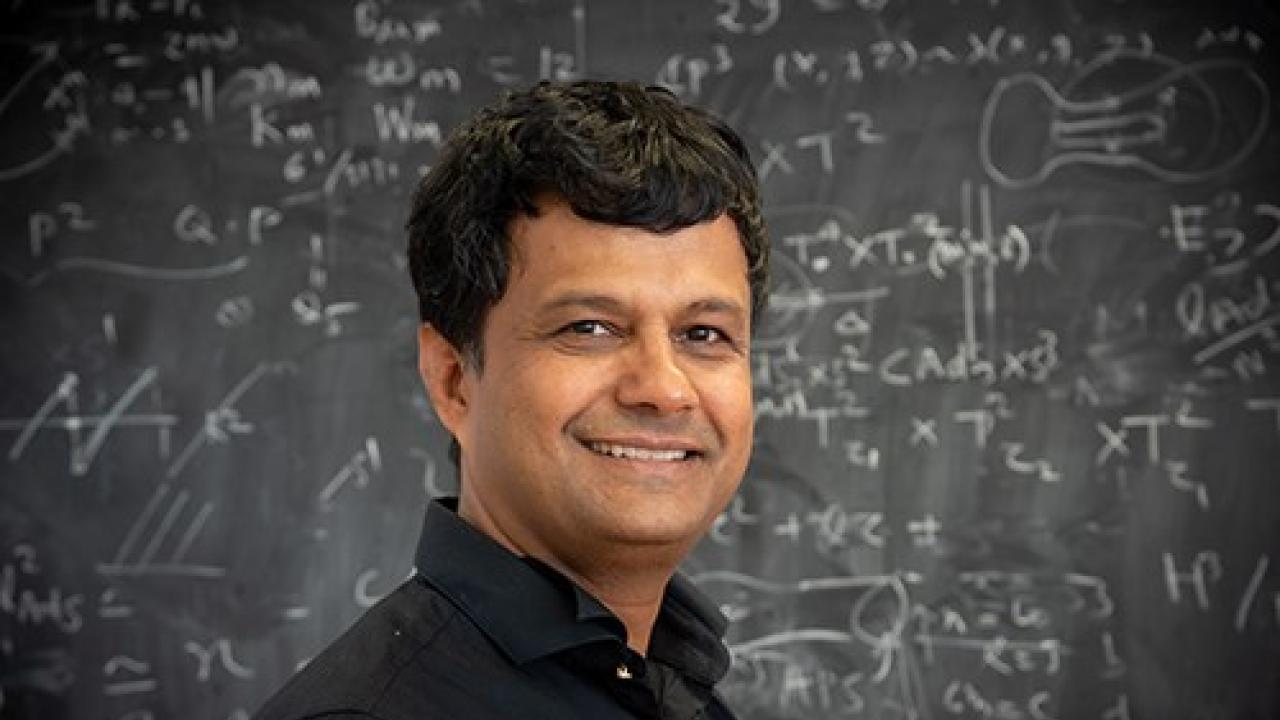
ICTP is pleased to announce the appointment of Atish Dabholkar, a theoretical physicist from India, as its next director. He is currently the head of ICTP's High Energy, Cosmology and Astroparticle Physics section.
Dabholkar will take up his new duties in November 2019. He will succeed Fernando Quevedo, who has led the centre since 2009.
"It's a great honour and responsibility to be chosen as ICTP's next director," says Dabholkar. "ICTP is a dynamic organization with a very high level of research and a unique global mission for international cooperation through science. It was envisioned as an international hub for excellence in science and as an anchor for building scientific capacity and a culture of science around the globe. This vision remains valid today, more than 50 years since its founding, but requires flexibility to meet changing realities and priorities."
Dabholkar is well-known for his research on string theory and quantum black holes, including investigations that build on ICTP founder Abdus Salam's Nobel-winning work on electroweak unification. Born in 1963 in India, he is a graduate of the Indian Institute of Technology at Kanpur, one of India's premier educational institutes. He earned a PhD in theoretical physics from Princeton University, followed by postdoctoral and research positions at Rutgers University, Harvard University and the California Institute of Technology. Until 2010, he was a professor of theoretical physics at the Tata Institute of Fundamental Research in Mumbai, and has been a visiting professor at Stanford University and a Visiting Scientist at CERN. He joined ICTP in 2014 on secondment from Sorbonne Université and the National Center for Scientific Research (CNRS), where he has been a research director since 2007.
He has received many honours, including the Shanti Swarup Bhatnagar Award (2006), the most prestigious national science prize awarded by the Indian Prime Minister, for his "outstanding contributions for establishing how quantum theory modifies the entropy of black holes and his pioneering studies of supersymmetric solitons in string theory". He is an elected member of the Indian Academy of Sciences, and in 2007 received the Chair of Excellence award from the National Research Agency (ANR) in France.
Dabholkar's appointment comes at a time of expansion for ICTP. Over the past 10 years, the current director, Fernando Quevedo, has reinforced ICTP's commitment and contribution to world-class theoretical physics research by hiring more researchers and creating new research initiatives in quantitative life sciences, high performance computing, renewable energies and quantum technology. In addition, ICTP has increased its presence in the developing world with the opening of four partner institutes in Brazil, China, Mexico and Rwanda.
"Directing ICTP is a once in a lifetime opportunity due to its unique mission and its big impact in developing countries. I am glad that when I leave in November the institute will be in very good hands," says ICTP Director Fernando Quevedo.
Related links:
















